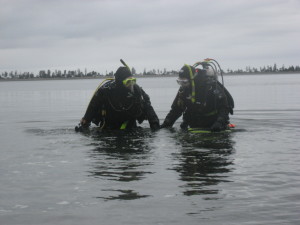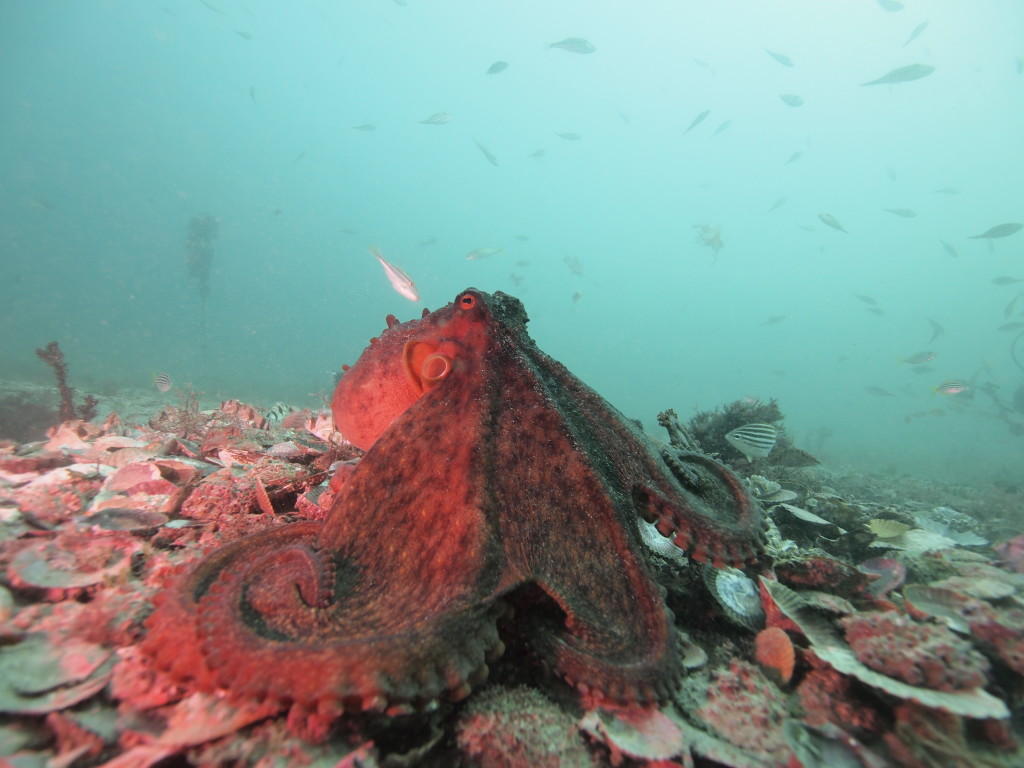Octopuses have generally been viewed as solitary creatures—and their color changing abilities primarily as a means to hide from hungry predators. But, after binge watching more than 52 hours of octopus TV, researchers reporting in the Cell Press journal Current Biology on January 28th have found that octopuses actually do have a social life. And it’s not without drama.
“We found that octopuses are using body patterns and postures to signal to each other during disputes,” said David Scheel of Alaska Pacific University. “The postures and patterns can be quite flashy, such as standing very tall, raising the body mantle high above the eyes and turning very dark.”
The octopuses in question belonged to a species known as Octopus tetricus living in the shallows of Jervis Bay, Australia. Scheel and his colleagues were tipped off that something interesting might be going on in that bay by a diver who alerted an online community of people interested in cephalopods that he’d seen something interesting. The researchers followed up from there, ultimately witnessing 186 interactions and more than 500 actions. In all that video, the octopuses interacted for more than 7 hours.
 Scheel and his colleagues noticed some intriguing patterns: when an octopus with a dark body color approached another dark octopus, the interaction was more likely to escalate to grappling. When a dark octopus approached a paler one, the pastier octopus more often retreated. When the opposite happened and a light octopus approached a darker one, the latter more often stood its ground.
Scheel and his colleagues noticed some intriguing patterns: when an octopus with a dark body color approached another dark octopus, the interaction was more likely to escalate to grappling. When a dark octopus approached a paler one, the pastier octopus more often retreated. When the opposite happened and a light octopus approached a darker one, the latter more often stood its ground.
“Dark color appears to be associated with aggression; while paler colors accompanied retreat,” Scheel said.
Octopuses also displayed on high ground, standing with their web spread and their mantle elevated. Octopuses in that “stand tall” posture frequently also sought higher ground. The researchers suspect the octopuses’ behaviors are meant to make themselves appear larger and more conspicuous.
The findings expand scientists’ understanding of how octopuses communicate and interact with each other. The researchers now suspect that interactions amongst octopuses are likely to occur wherever food is plentiful and hiding places are scarce.
They’ll continue to study these octopuses and to explore how their interactions might influence the size of the population.

